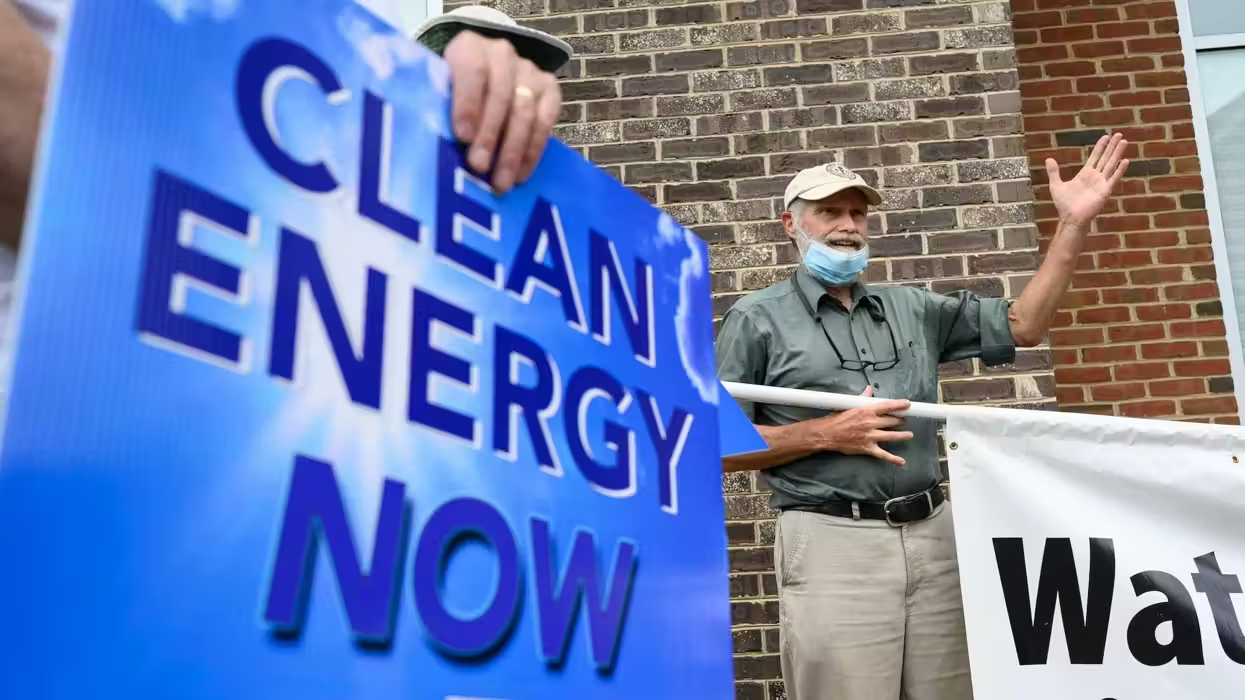WASHINGTON (AP) -- Congressional negotiators prepared to unveil a tax and spending compromise Tuesday that would cap Congress' year, a massive package expected to lift the ban on U.S. oil exports and extend numerous tax credits, while funding every government agency and heading off a shutdown.
House Speaker Paul Ryan said Tuesday morning that the deal would be released later in the day and come to a vote on Thursday. That will require passage of another short-term spending bill since government funding expires Wednesday at midnight.
"I'm not going to predict how the vote count is going to go down. Look, in negotiations like this you win some, you lose some. Democrats won some, they lost some. We won some, we lost some," Ryan, R-Wisconsin, said at a breakfast hosted by Politico. "At the end of the day we're going to get this done."
 WASHINGTON, DC - DECEMBER 10: House Speaker Paul Ryan (R-WI) holds his weekly press briefing on Capitol Hill on December 10, 2015 in Washington, D.C. Paul Ryan spoke on topics including Donald Trump and the spending bill. (Photo by Allison Shelley/Getty Images)
WASHINGTON, DC - DECEMBER 10: House Speaker Paul Ryan (R-WI) holds his weekly press briefing on Capitol Hill on December 10, 2015 in Washington, D.C. Paul Ryan spoke on topics including Donald Trump and the spending bill. (Photo by Allison Shelley/Getty Images)
Speaking separately at the same event, Senate Majority Leader Mitch McConnell avoided offering details but spoke of the benefits of a long-term deal to extend dozens of tax breaks sought by lawmakers on both sides. McConnell said such a deal would make a larger tax reform package easier to achieve next year, while satisfying business goals, including extending a research and development tax credit and a popular deduction for equipment purchases.
"Making those permanent is, I think, an important shot in the arm to our economy," McConnell said.
A major priority for the GOP and some Democrats was lifting the 40-year-old bar against exporting U.S. crude oil, a remnant of the 1970s oil shortages that industry supporters consider unneeded with today's explosion of domestic oil extraction. Critics say ending the prohibition would be a windfall to big oil companies that would damage the environment by encouraging more drilling.
In exchange, Democrats were seeking concessions including renewing tax breaks for solar and wind energy producers for five years and reviving an environmental conservation fund. Democrats also wanted to block GOP efforts to roll back Obama administration environmental regulations, including one setting new emission standards for power generating plants.
Negotiators had sorted through remaining disputes over environment, labor and other provisions in a $1.1 trillion bill financing federal agencies for 2016. Ryan said final work was being done by congressional scorekeepers tallying the costs of the bill.
Lobbyists said the spending package would likely lack a provision pushed by House Minority Leader Nancy Pelosi, D-Calif., easing curbs against gun violence research by the federal Centers for Disease Control and Prevention.
"There will be some elements of the budget bill that are not consistent with the kinds of policies that we have long supported," predicted White House spokesman Josh Earnest. "But that's the essence of compromise."
 (Photo by Chip Somodevilla/Getty Images)
(Photo by Chip Somodevilla/Getty Images)
Also in play were about 50 lapsed and expiring business and individual tax breaks that the two sides were looking to extend, in some cases permanently. The price tag of the overall package was unclear but it could mushroom to several hundred billion dollars over a decade, which would further add to federal deficits.
"If I can play it right, both sides should walk out of here feeling pretty good," said Sen. Orrin Hatch, R-Utah, chairman of the tax-writing Senate Finance Committee.
Lobbyists said bargainers had tentatively agreed to postpone the launch of a tax on high-value health insurance plans from 2018 to 2020. There may also be a two-year pause in the existing 2.3 percent medical device tax and a one-year suspension of a levy currently imposed on health insurers, which the companies generally pass on to customers as higher premiums.
Those three taxes were boosted as part of President Barack Obama's 2010 health care overhaul to pay for the law's expanded coverage for millions of people. The administration has long resisted unraveling that statute, but there is strong bipartisan support in Congress for easing those taxes.
The two sides also were working to make some expiring business tax credits permanent in exchange for doing the same to tax breaks for children, college students and lower-earning families.
---
AP Congressional Correspondent Erica Werner contributed to this report.

 WASHINGTON, DC - DECEMBER 10: House Speaker Paul Ryan (R-WI) holds his weekly press briefing on Capitol Hill on December 10, 2015 in Washington, D.C. Paul Ryan spoke on topics including Donald Trump and the spending bill. (Photo by Allison Shelley/Getty Images)
WASHINGTON, DC - DECEMBER 10: House Speaker Paul Ryan (R-WI) holds his weekly press briefing on Capitol Hill on December 10, 2015 in Washington, D.C. Paul Ryan spoke on topics including Donald Trump and the spending bill. (Photo by Allison Shelley/Getty Images)
 (Photo by Chip Somodevilla/Getty Images)
(Photo by Chip Somodevilla/Getty Images)





